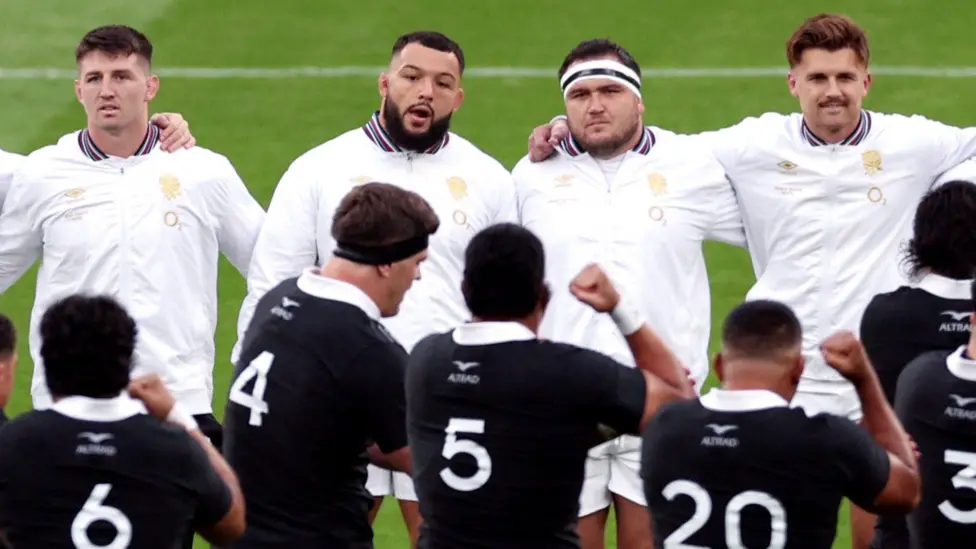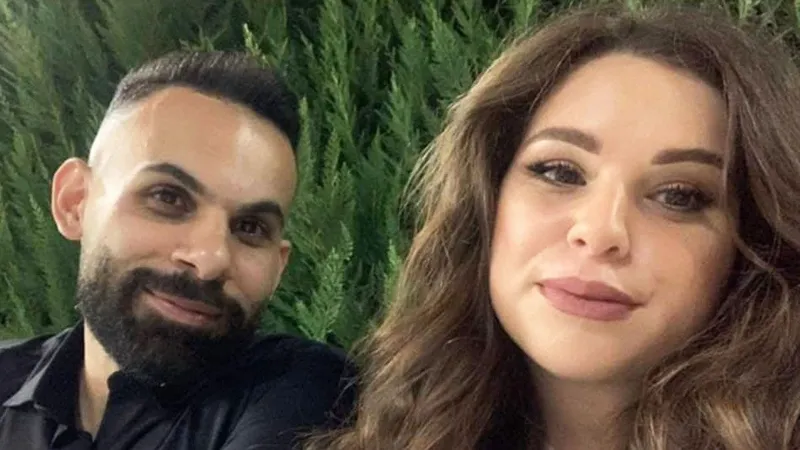Iran and NATO summit live: Trump doubles down on 'obliteration' of Iranian nuclear facilities despite intel leak
At the NATO summit, Donald Trump has again rejected reports that US intelligence is suggesting strikes on Iran didn't destroy nuclear sites. He also says the Israel-Iran ceasefire is "going well".

'Ironclad commitment' to Article 5 survives Trump's scepticism in summit communique - but Ukraine sidelined
Donald Trump and his NATO allies confirmed their "ironclad commitment" to collective defence in a communique released at the end of a brief summit in The Hague.
They also agreed to boost defence spending and described Russia as a "long-term threat".
But there was no mention of criticism about Vladimir Putin's war in Ukraine - something that had been in previous statements by allied leaders when Joe Biden was in the White House.
There was also no word about NATO membership for Ukraine - even though the alliance had previously said Kyiv was on an "irreversible path" to joining.
Trump, though, has ruled out NATO membership for Ukraine. He has a closer relationship with the Russian president than many other allies.
'Ironclad commitment' to collective defence reaffirmed
The endorsement of Article 5 of NATO’s founding treaty came after the US commander in chief – the most powerful leader in the room – suggested on his way to the gathering that his definition of what it means may differ from other allies.
The US president’s words risked undermining the credibility of a commitment that has helped ensure the security of NATO for more than 75 years, though the joint statement, approved by the leaders of all 32 member states spelt out clearly what article 5 constitutes.
“We reaffirm our ironclad commitment to collective defence as enshrined in Article 5 of the Washington Treaty – that an attack on one is an attack on all,” it said.
"We remain united and steadfast in our resolve to protect our one billion citizens, defend the Alliance, and safeguard our freedom and democracy."
5% pledge designed to reassure Trump
Sir Keir Starmer and the leaders of all European member states, as well as Canada, are all too aware of Trump's scepticism about NATO.
He has accused his allies of taking advantage of the US's far more powerful armed forces to defend Europe and wants the rest of the alliance to take on more of the burden.
Urgently needing to keep him onside, Mark Rutte, the head of NATO, has been rallying member states to agree to a new pledge to spend 5% of GDP on defence and related areas – a figure first touted by Trump.
The statement commits allies to hit this goal by 2035, though Spain has already come out to warn it will agree to the new target, but without having a plan to reach it.
"United in the face of profound security threats and challenges, in particular the long term threat posed by Russia to Euro-Atlantic security and the persistent threat of terrorism, Allies commit to invest 5% of GDP annually on core defence requirements as well as defence-and security-related spending by 2035," the communique read.
It is a significant rise, that is broken down into 3.5% of GDP on core defence – up from a previous goal of 2% - and a further 1.5% to be invested in national resilience, such as roads, railways, energy and cyber security.
Ukraine only mentioned in context of spending
The final communique was much shorter than usual, comprising just five paragraphs.
The only mention of Russia's war in Ukraine said: "Allies reaffirm their enduring sovereign commitments to provide support to Ukraine, whose security contributes to ours, and, to this end, will include direct contributions towards Ukraine's defence and its defence industry when calculating Allies' defence spending."
Trump has vowed to end Russia's war in Ukraine but has so far failed to stop the fighting.
NATO members confirm 5% spending commitment
NATO members are committed to spending 5% of their GDP on defence and security by 2035, according to a declaration from the summit in The Hague.
We'll bring you more on this shortly.
Starmer: My first duty is to keep Britain safe
As world leaders continue with discussions at The Hague, Sir Keir Starmer has said his first duty is to "keep Britain safe".
He shared the brief message on X along with a group photo taken at The Hague...
Earlier, Starmer confirmed that the UK is set to buy a fleet of new fighter jets capable of carrying nuclear weapons, in what Downing Street has called the "biggest strengthening" of Britain's posture "in a generation".
Britain will buy 12 F-35A jets and join NATO's airborne nuclear mission in the move.
Starmer said the UK "can no longer take peace for granted" and that the move shows ministers are "investing in our national security".
Internet in Iran returns to 'previous state' after recent shutdowns
The internet in Iran has returned to its "previous state", the country's communications minister has said.
Sattar Hashemi said on X that conditions were returning to normal.
"I sincerely apologise to all the people, especially those in the communications sector and activists in the country's digital economy, for this imposed situation," he said.
He went on to say he hoped Iranians "never have to experience such conditions again".
For context: During the Israeli strikes on Iran this month, most Iranians experienced a complete internet blackout.
Iran's government cited cybersecurity concerns for ordering the shutdown.
Pope urges Iran and Israel to reject 'bullying and revenge'
The Pope has urged Israel and Iran to "reject the logic of bullying and revenge".
Speaking at his weekly general audience, Pope Leo XIV said he was following recent developments "with attention and hope".
He quoted the bible: "A nation shall not raise the sword against another nation."
The American pope added: "Let us listen to this voice that comes from on High."
"Heal the lacerations caused by the bloody actions of recent days, reject all logic of bullying and revenge, and resolutely take the path of dialogue, diplomacy and peace."
Key comments from NATO chief heaping praise on Trump at summit
Here's a look at some of the key comments that we've heard this morning as the head of NATO heaped praise on Donald Trump.
Mark Rutte said the expected hike in the alliance's defence and security spending target to 5% of GDP "wouldn't have happened" without the US president.
Trump described the move as a "great victory for everybody", and said: "NATO is going to become very strong with us".
Returning to Iranian nuclear sites is top priority, IAEA chief says
Getting inspectors back to Iran's nuclear facilities to assess the impact of US and Israeli military strikes is the top priority, the head of the UN nuclear watchdog has said.
The International Atomic Energy Agency (IAEA) would then be able to verify Iran's stocks of enriched uranium, Rafael Grossi said.
"This is the number one priority," he told a news conference at an Austrian security cabinet meeting.
Asked if Iran had informed him of the status of its enriched uranium stocks, particularly that enriched to up to 60% (close to weapons grade) he pointed to a letter he received from Iran earlier this month saying Tehran would take "special measures" to protect its nuclear materials and equipment.
"They did not get into details as to what that meant but clearly that was the implicit meaning of that. We can imagine this material is there," Grossi said.
His comments suggest much of that material may have survived the attacks, which chimes with US intelligence reports suggesting the strikes did not destroy Iran's nuclear programme - something denied by Donald Trump, who said the sites had been "obliterated".
Jerusalem calmer as ceasefire holds
It has been "a lot calmer" in Jerusalem than it has been in the past week, Sky correspondent Tom Cheshire, who is on the ground there, reports.
He says there has been a lot of focus on the Fordow nuclear site in Iran and the extent of the destruction there, but in terms of the wider picture, it's not just about that military site but also about the diplomatic effort.
"I think that's why the ceasefire is so important. We don't have many of the details yet but it has been holding," he says.
"People here in Jerusalem slept easy for the first time in a while, we don't have sirens or alerts sending people down to shelters."
Cheshire says it is "a lot calmer than it has been in the past week".
"That calmness means attention probably can turn back to Gaza," he adds.
"That might be the next chapter here."
-SKY NEWS






